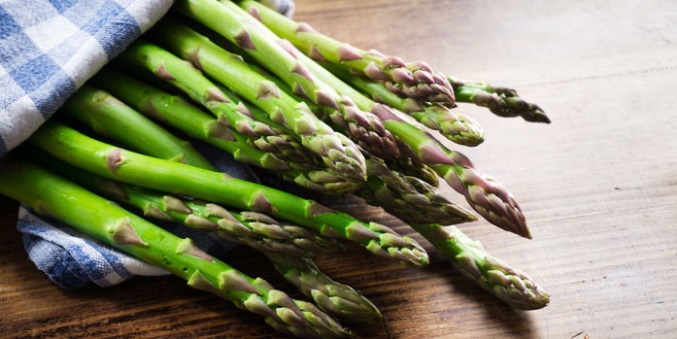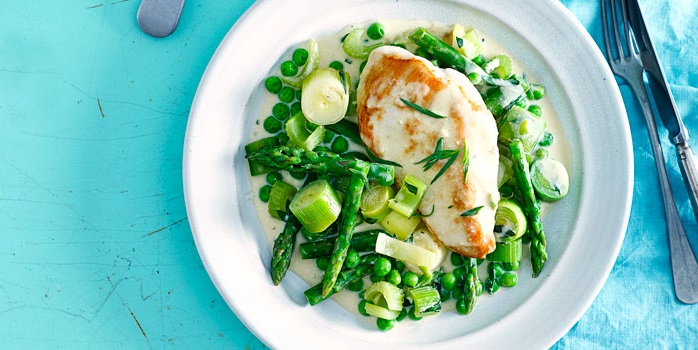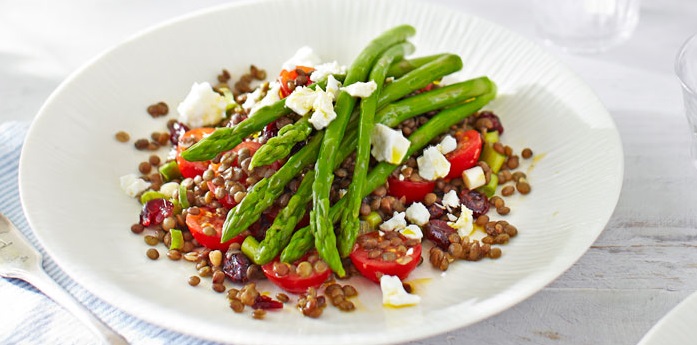
What is asparagus and when is it in season?
Asparagus is a spear-like vegetable that is a member of the lily family. It’s typically in season in the UK from April until June, traditionally starting 23 April (St George’s Day) and ending on the summer solstice in June. The majority of asparagus is green in colour, but you can also get white and purple varieties too.
Nutritional benefits of asparagus
Asparagus is packed full of goodness including vitamin A, an essential nutrient that helps to protect our eyes, skin and immune system, plus vitamin C which helps to strengthen our capillaries and is involved in collagen formation. Asparagus is also a good source of vitamin K, used in bone formation and blood clotting, and may reduce the risk of diabetes.
Asparagus also contains folic acid, important for making blood cells. Folic acid is also an essential nutrient during pregnancy as it is needed for foetal development. Just 150g of asparagus will provide the total recommended daily intake of folic acid for most adults (200mg). The NHS recommends that pregnant women get 400mg folic acid a day.
Asparagus has long been known for its diuretic properties, meaning it's good for helping to flush out the kidneys and may help in the prevention of kidney stones. It also has anti-inflammatory effects, so may relieve inflammatory conditions.

How much asparagus counts towards my five-a-day?
Five asparagus spears or 80g of asparagus counts as one portion towards your five-a-day. Read our five-a-day infographic and discover cheap ways to reach your five-a-day.

How do you cook with asparagus?
Asparagus is super versatile and can be baked, griddled, roasted, steamed, boiled or blanched.

